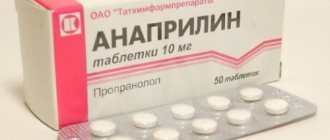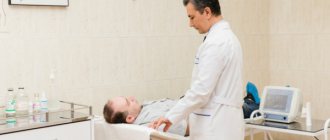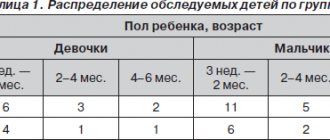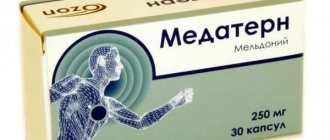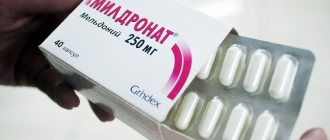If necessary, Riboxin is prescribed to activate and normalize metabolic processes in the heart muscle, as well as to better supply tissues with oxygen.
The drug has also found wide use among athletes, since its use leads to the restoration of carbohydrate, protein and fat metabolism, which increases the body's defenses and increases the effectiveness of training.
The drug is available in the form of capsules, tablets and injection solution and is produced by enterprises in the former Soviet Union and foreign countries (Great Britain, China, Switzerland).
The modern pharmaceutical industry presents numerous analogues of Riboxin, which have almost identical effects, but differ in manufacturer, and in some cases in composition and release form.
What is Riboxin
A drug based on inosine, a precursor of adenosine triphosphate. Regulates blood circulation, absorption of glucose by cells, restores nutrition to the myocardium. Several pharmaceutical forms of Riboxin are produced:
- tablets: yellow, coated, contain 200 mg of active substance, packaged in cell blisters, packed in 10–50 pcs.;
- Riboxin Lect: soft gelatin capsules containing 200 mg of inosine, up to 50 pcs. in one package;
- 2% solution for parenteral administration: a clear, water-based liquid in ampoules of 5–10 ml, used for injection.
Oral medications contain starch, gelatin, sucrose, glycerin and other formative substances.
Reviews
Mikhail, 28 years old (Omsk) I have been involved in strength sports for a long time. Initially, to increase the body’s resistance to physical activity, the trainer recommended using Riboxin. Maybe, of course, he helped, but it was unnoticeable to me. I felt the difference only after I was offered to replace Riboxin with Mildronate. After using it for 2 weeks, I can train much longer, fatigue has disappeared, and the effectiveness of training has increased.
Irina Vitalievna, general practitioner (Norilsk) It is very difficult to say what is better than Riboxin or drugs that have a similar effect to it. If we talk about structural analogues of Riboxin, then there is practically no difference in effectiveness. In this case, you need to pay attention to additional substances and price. Some patients prefer to be treated with expensive medications, others choose cheap domestic ones. As for drugs that have a composition different from Riboxin, an individual approach is required. Each medicine is aimed at getting rid of certain diseases, but only has its own contraindications and side effects.
Svetlana Maksimovna, 64 years old (Belgorod) I have been suffering from chronic coronary heart disease (angina) for a long time. To maintain my health, I took Inosie-F as prescribed by my doctor. The medicine is produced in Taiwan and is quite expensive. I am a pensioner, my pension is small, there is no one to help me. Recently, a friend told me that there is a domestic substitute for Inozie-F - Riboxin, which costs a penny. I decided to try it. The result pleased me. The effect of the drugs is the same, but the price of Riboxin is much lower.
How does Riboxin work?
Inosine in all types of the drug has systemic effectiveness. It restores metabolism, helps the body adapt to work in conditions of insufficient oxygen supply. The medicine eliminates and prevents the occurrence of arrhythmia in chronic vascular diseases. Regular use helps normalize myocardial contractility and reduce ischemic disorders.
The therapeutic effect increases with the course of taking the drug. In the blood, inosine actively stimulates tissue metabolism, ATP production, smoothes out the manifestations of bradycardia, tachycardia, increases the force of contraction of the heart muscle and promotes better relaxation.
Riboxin has a moderate antiplatelet effect: it improves blood fluidity and prevents platelet aggregation. Another therapeutic effect of the drug is biostimulating. The medicine accelerates the regeneration of muscle fiber cells and mucous membranes.
Other substitutes
There are also medicines that contain active components different from Riboxin, but have the same functional orientation. Some of them belong to the new generation of drugs and have a much better effect.
Mildronate
The drug is produced on the basis of meldonium, which gives the drug angioprotective, anginal, antihypoxic and cardioprotective effects. Intended for:
- normalization of metabolism in cells;
- improving blood microcirculation;
- slowing down necrotic processes;
- reducing the recovery period after surgery;
- improving the contractility of the heart muscle;
- increasing the body's defenses;
- increasing endurance during physical and mental stress;
- treatment of certain eye diseases.
Mildronate is a Latvian drug intended for oral, intramuscular, intravenous and parabulbar administration.
Taking Mildronate may cause:
- manifestations of allergies;
- dyspeptic symptoms (belching, nausea, vomiting, heartburn);
- tachycardia;
- increased arousal;
- lowering blood pressure.
Contraindications to the use of the drug include individual intolerance to its components and intracranial hypertension.
Unlike Riboxin, Mildronate does not participate in the production of any substances in the body; with its help, metabolic processes are only corrected.
Cavinton
It is produced on the basis of vinpocetine with the addition of excipients.
Cavinton is a Hungarian drug produced in the form of tablets and injection solution.
Cavinton has a positive effect on metabolic processes in the brain. Recommended for:
- transistor ischemia;
- ischemic stroke;
- atherosclerosis;
- post-traumatic or hypertensive encephalopathy;
- neurological and mental disorders (memory disorders, headaches, movement disorders), etc.
Side effects appear as:
- lowering blood pressure;
- dyspeptic disorders;
- headaches;
- dizziness;
- feelings of weakness;
- allergies.
The drug is contraindicated in severe forms of arrhythmia expressed by coronary heart disease, during pregnancy and breastfeeding.
Cytoflavin
The drug is produced on the basis of:
- succinic acid, which is involved in the synthesis of ATP and has a direct effect on glycolysis, which improves cellular metabolism;
- inosine – the main ingredient of Riboxin;
- Riboflavin (vitamin B2), which is a direct participant in the Krebs cycle, is of particular importance for the body and acts as an antioxidant;
- nicotinamide, which helps improve cellular respiration and ATP synthesis.
Cytoflavin – Russian medicine, dosage form – tablets and injection solution
The advisability of prescribing Cytoflavin arises when:
- impaired cerebral circulation (after a stroke);
- prolonged mental or physical stress;
- insufficient blood supply to the brain in a newborn baby;
- use of artificial circulation in the postoperative period;
- cerebral atherosclerosis.
The drug is not used in case of allergy to its components, in case of kidney disease and in patients under 18 years of age.
In rare cases, the use of Cytoflavin can provoke headaches, tachycardia, arrhythmia, nausea, vomiting, allergies and other unpleasant symptoms.
Mexicor
The drug contains hydroxymethylethylpyridine succinate as the main component.
Mexicor is produced in the form of capsules and injection solution by the Russian enterprise EcoPharmInvest
Thanks to its antihypoxic, neuroprotective, nootropic, anxiolytic and antioxidant effects, Mexicor, together with other treatment methods, eliminates:
- cardiac ischemia;
- ischemic stroke;
- mild to moderate cognitive impairment;
- dyscirculatory encephalopathy.
Mexicor injections are recommended for myocardial infarction.
The use of the drug is prohibited when:
- liver and kidney pathologies in the acute stage;
- hypersensitivity to the components of the product.
Pregnant and lactating women, as well as patients under 18 years of age, are not recommended to use the drug due to the lack of data on its effect on their body and the health of the child.
Actovegin
It is produced on the basis of deproteinized hemoderivative from calf blood, which helps to activate metabolic and regenerative processes and improve trophism. The use of the drug leads to an increase in tissue resistance to oxygen deficiency and activation of energy metabolism.
Actovegin is produced by the Austrian drug manufacturer Nycomed Austria GmbH in the form of a solution for injection and infusion, tablets, cream, gel and ointment.
Actovegin, together with other drugs, fights against:
- vascular and metabolic disorders in the brain (ischemic stroke, dementia, etc.);
- diabetic polyneuropathy;
- arterial and venous disorders and their consequences (trophic ulcers, angiopathy).
Unlike drugs similar in effect to Riboxin, there are dosage forms of Actovegin that have a local therapeutic effect (gels and ointments) and are intended for the treatment of inflammatory processes on the skin and mucous membranes (burns, abrasions, cuts, cracks, etc.).
The use of Actovegino is contraindicated in:
- oliguria;
- pulmonary edema;
- anuria;
- individual intolerance;
- decompensated heart failure (if necessary, IVs).
Therapy with Actovegin can lead to:
- allergic manifestations (swelling, increased sweating, etc.)
- dyspeptic disorders (vomiting, nausea, diarrhea);
- ticcardia, heart pain, pallor of the skin, shortness of breath;
- feeling of weakness, headaches, dizziness, tremor;
- rapid breathing.
Undesirable manifestations occur very rarely and are eliminated with symptomatic treatment.
If it is necessary or desirable to replace Riboxin with its analogue, it is necessary to consult with the attending physician, who will select the most effective and safe remedy for the patient’s health.
For what diseases is Riboxin used?
The main area of medicine in which the drug is in demand is cardiology. Riboxin is prescribed:
- for coronary insufficiency, angina pectoris, and other manifestations of cardiac ischemia;
- to relieve disorders in patients after a heart attack;
- in case of intoxication with cardiac glycosides;
- for cardiac arrhythmias of various origins;
- with dystrophic changes in the myocardium due to physical exhaustion, endocrine pathologies.
In the complex treatment of diseases of internal organs, Riboxin is used due to its regenerating and metabolic effects. Main indications:
- liver damage: hepatosis, hepatitis, cirrhosis;
- gastric ulcer, erosive changes in the intestinal mucosa;
- open-angle glaucoma with stable intraocular pressure;
- pathological conditions after radiation and chemotherapy.
Is Riboxin allowed for pregnant women?
Expectant mothers need more nutrients, the absorption of which is questionable due to hypoxic disorders. In this situation, Riboxin improves metabolism, ensures better energy exchange, eliminates the effects of oxygen starvation, and prevents the development of cardiac complications.
Riboxin injections are used more often than tablets as a faster way to deliver medicine into the blood. The drug is administered orally to pregnant women, usually at home, according to an individual dosage regimen.
